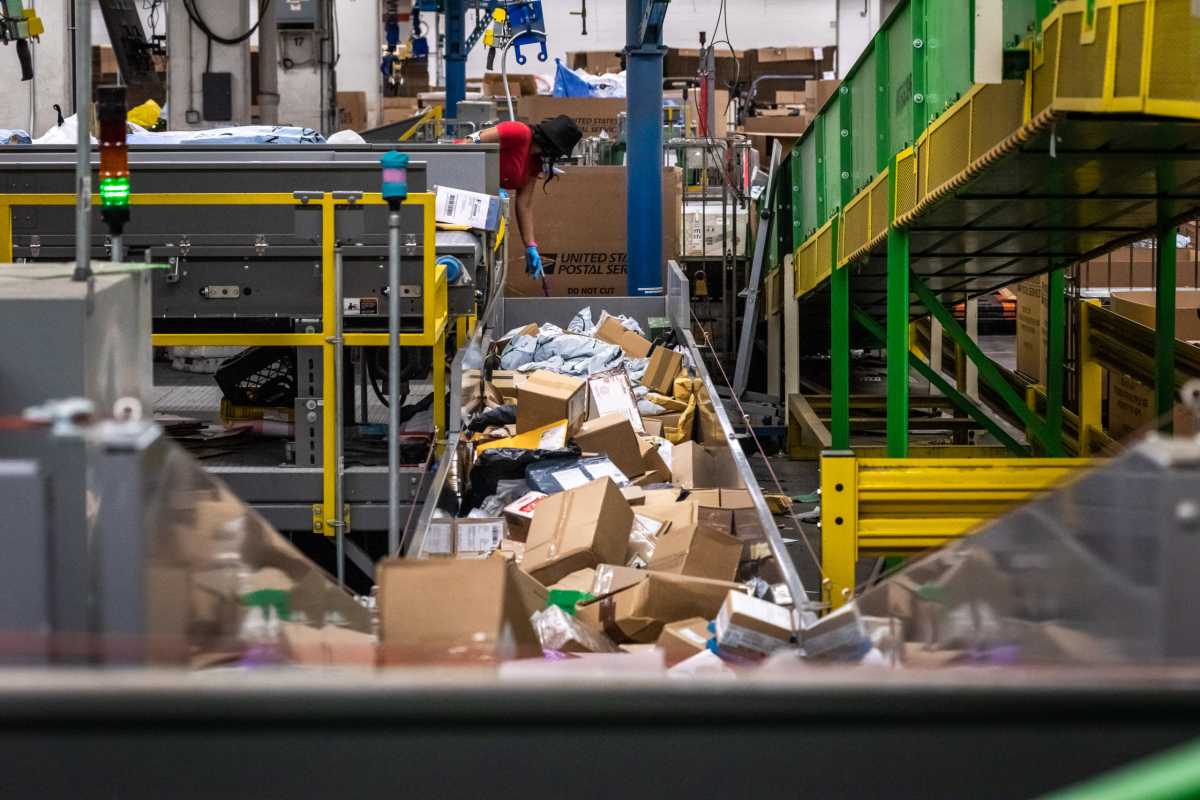For the United States Postal Service, the “most wonderful time of the year” is always the busiest time of the year. QNS got a behind-the-scenes tour of the USPS processing and distribution center in Flushing, one of New York’s largest sorting facilities.
Amy Gibbs, Strategic Communications Specialist for USPS, shared that on Dec. 7 and Dec. 14, the distribution center broke postal records — processing over 1 million packages in one day.
Four hundred seasonal hires support the existing 700 full-time employees at the distribution center throughout the holidays to ensure timely delivery. Gibbs explained that some become full-time employees and that USPS hired a total 40,000 seasonal workers nationwide.
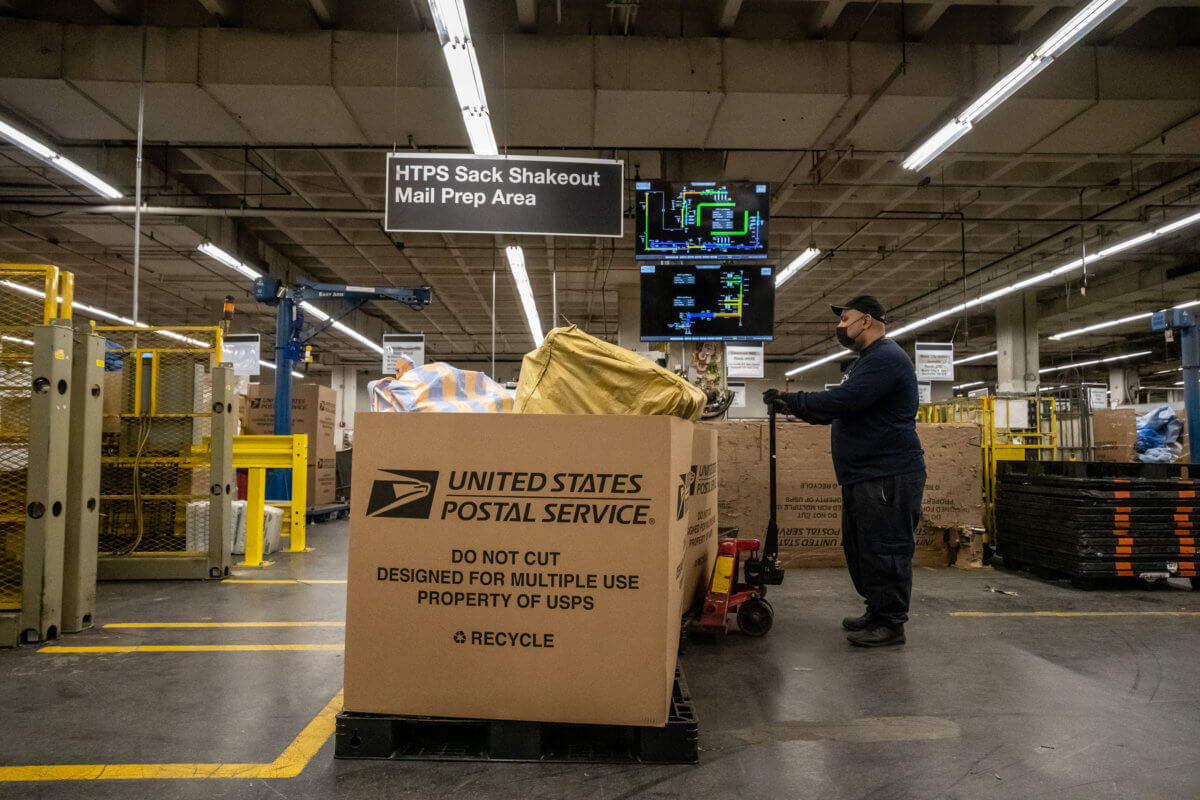
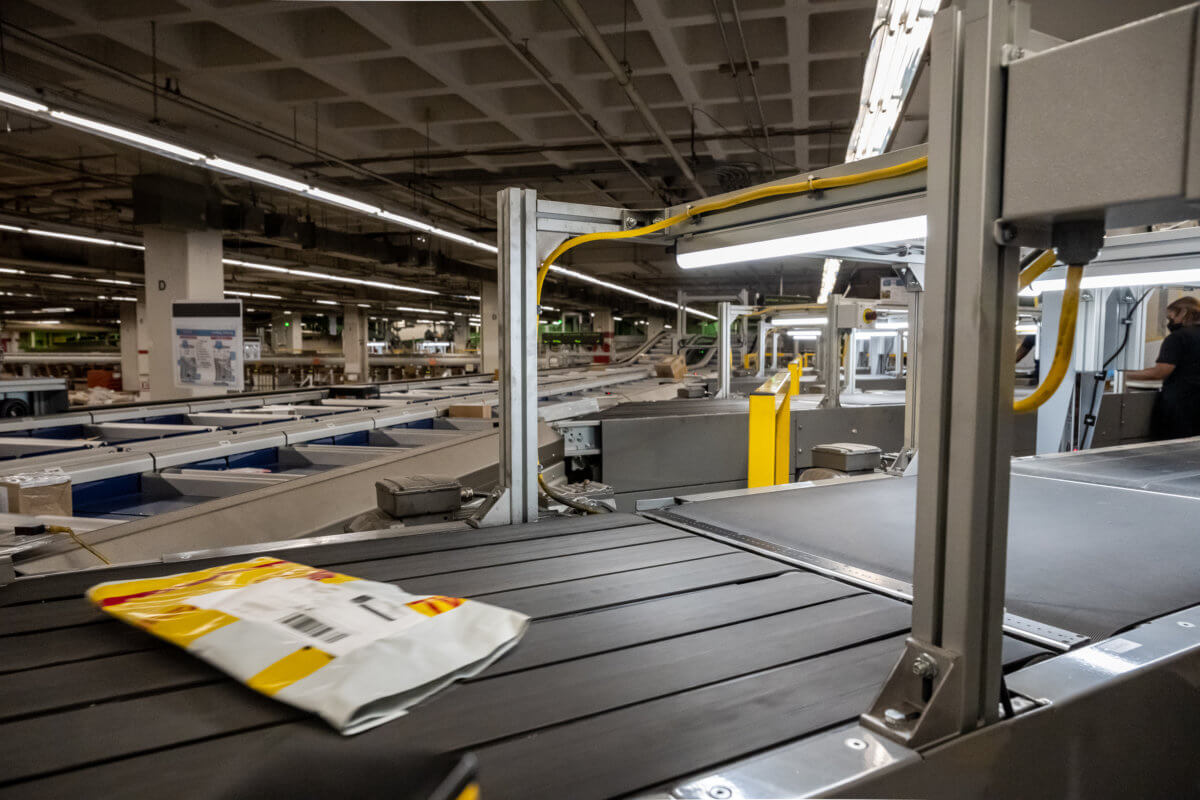
She continued that as part of Post Master General Louis DeJoy’s 10-year plan, “Delivering for America,” the USPS added 112 new packing sorting machines, leased 13 million square feet of additional space, and made changes about how to convert pre-career employees into career employees.
“We learned from our mistakes last year, developed a plan and we’ve been implementing it,” Gibbs said. “And so far, it’s been going a lot smoother this year.”
During the tour, Steven Grant, the USPS Flushing distribution center’s acting plant manager, explained that the plant, which operates 24/7, does not handle letters or flats, solely parcels.
“Parcels are the newest frontier of the Post Office,” Grant said. “It used to be letters and flats. I worked on it all. But it changed to parcel processing, which is so much more exciting, so much more mail.”
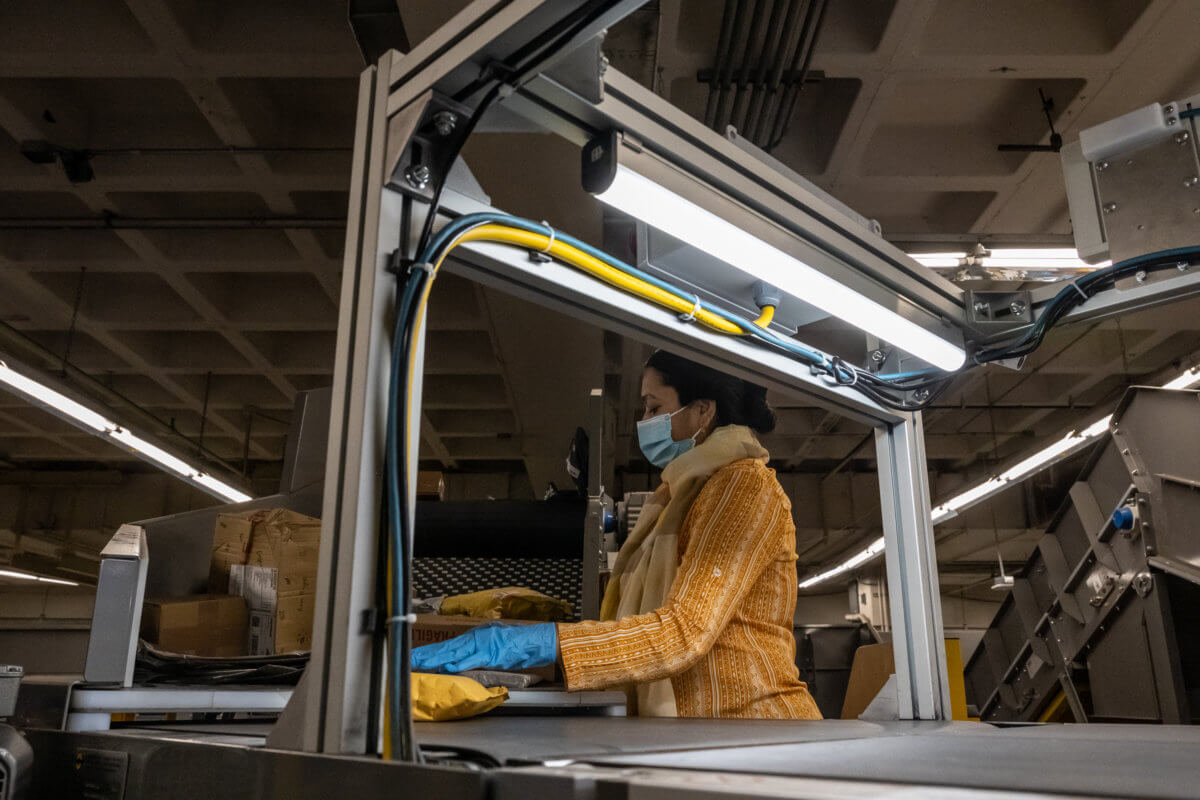
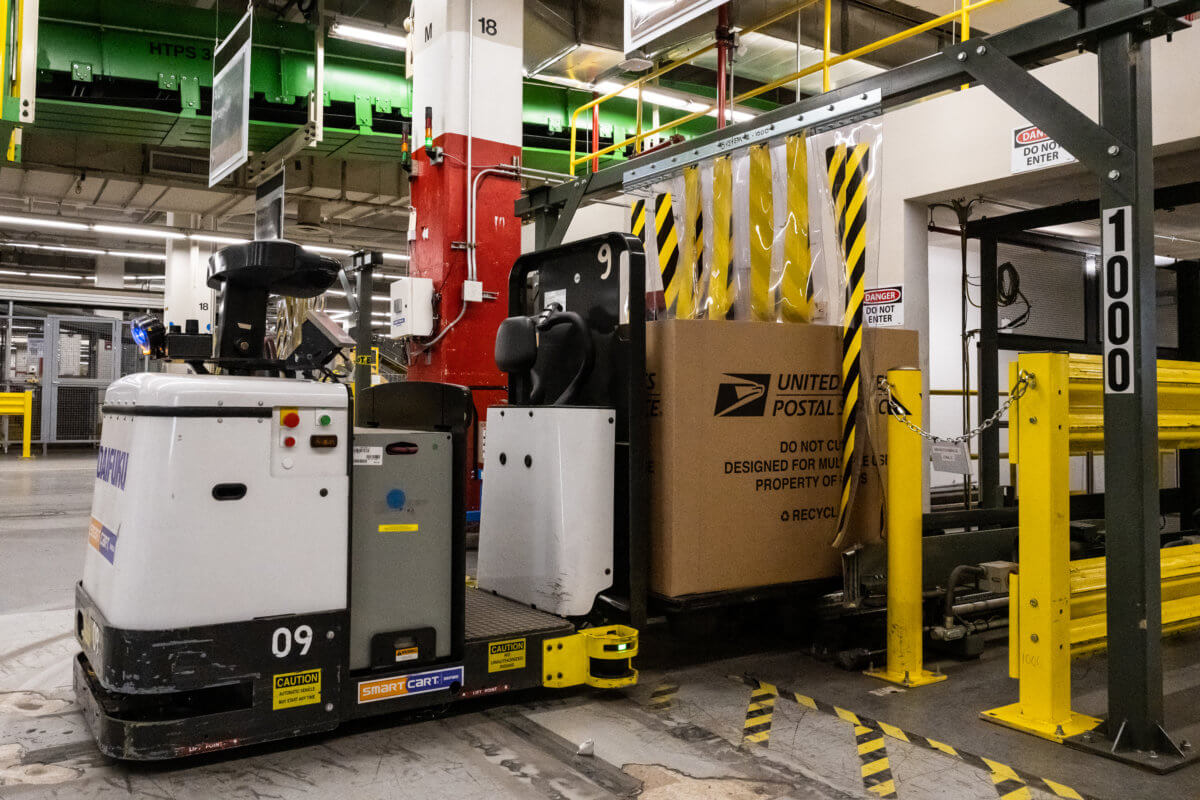
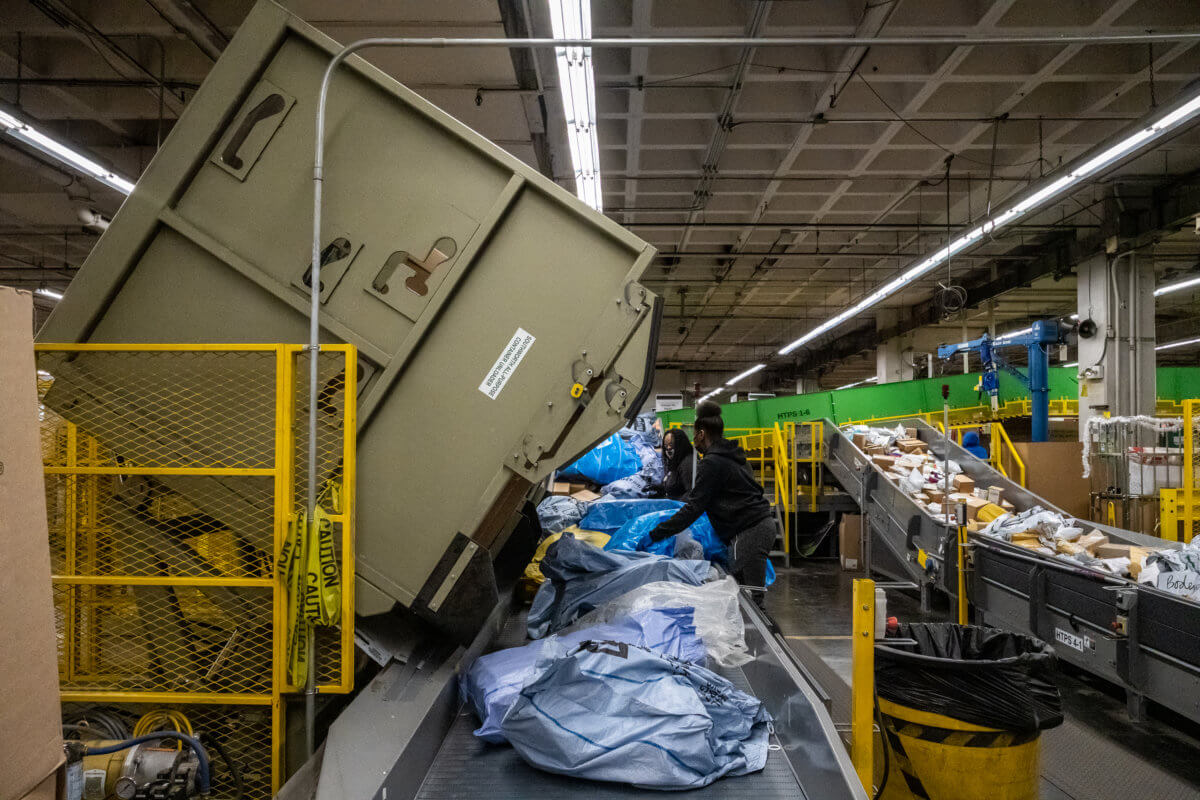
Gibbs remarked that due to the increase in e-commerce during the COVID-19 pandemic — a trend that was already happening before the pandemic hit the U.S. in March of 2020.
“It started to feel like the holiday season in April, and the trend has continued,” Gibbs said.
One of the sorting machines at the Queens facility is the HTTPS —the largest machine in the facility.
Peter Lemza, distribution operations manager, explained that the HTTPS cost $44,000,000 and was only one of two in operation nationwide. The second one is at a USPS distribution center in Denver, Colorado.
The parcels are dumped onto a conveyor belt on the first floor, which proceeds to the facility’s second floor. The packages, national and international, are scanned by mail processing clerks at one of the 14 scanning stations. From there, the packages continue on a different conveyer belt and drop into one of the 600 bins, which are organized by ZIP code.
One of the eight Daifuku smart carts, an automatic guided card, loads the bins and unloads them onto a dock. From there, a lift takes the bins back down to the main floor to dispatch.
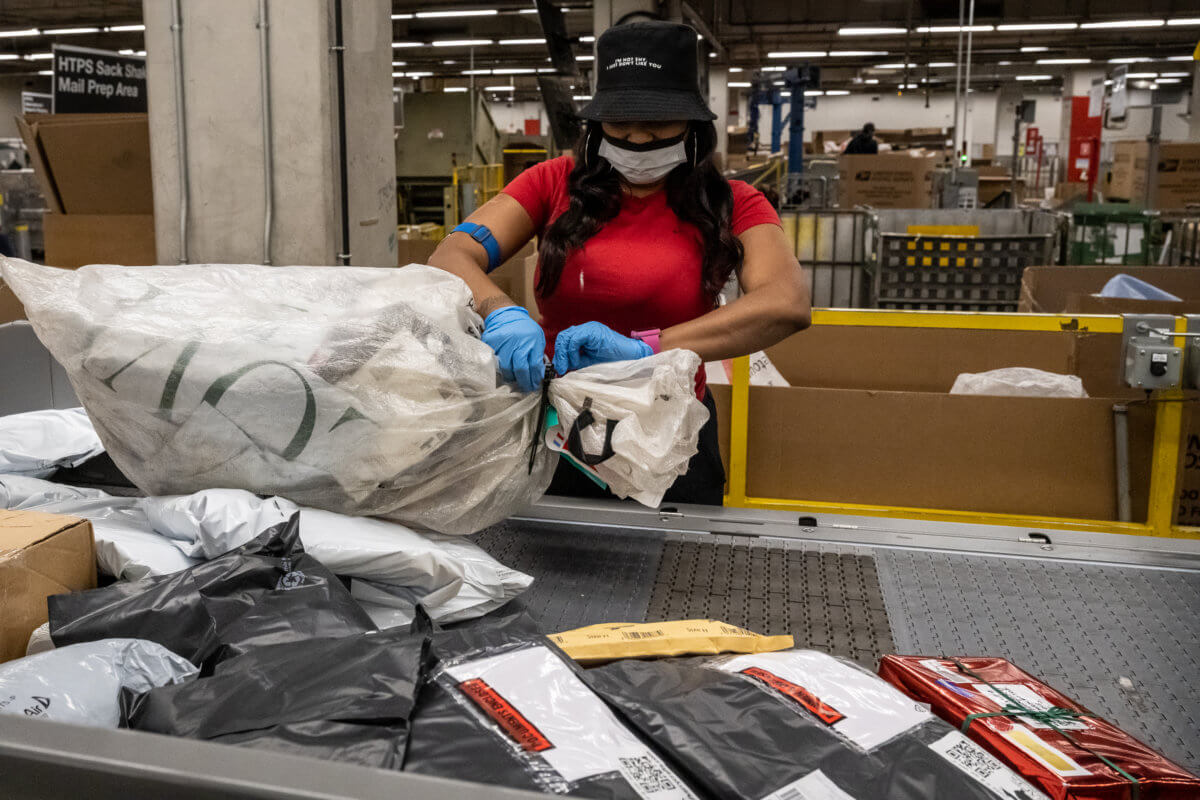
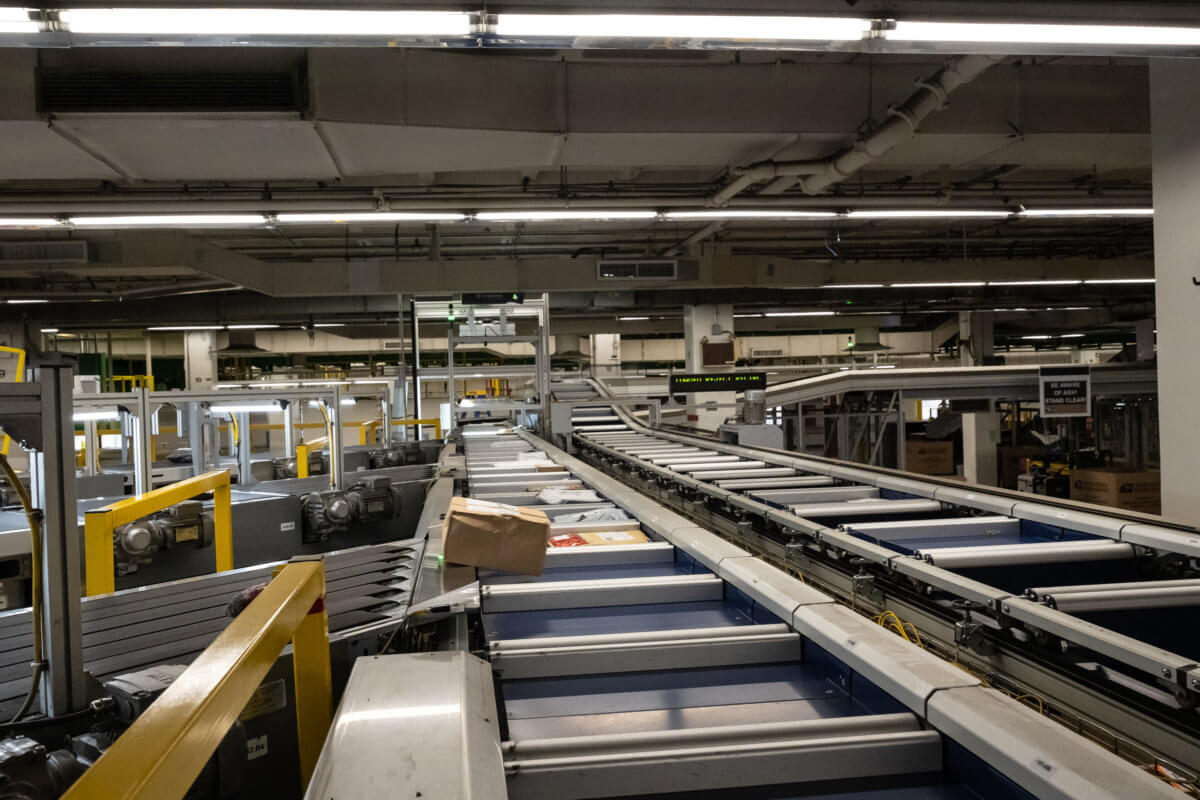
Pamela Monroe, who has been with USPS for 16 years, is the HTTPS supervisor. She shared that she worked at the SPSS machine before but volunteered to work on the HTTPS four years ago because she wanted to take on a new challenge.
She explained that it requires 22 clerks and eight male handlers to run the machine on the second floor. Most of the clerks are responsible for scanning the packages, while the mail handlers dispatch the boxes once they are filled up.
Pointing to a computerized board, she said, “This is a feed system. You have to watch this board because sometimes they have blockages when the mail is coming into the system. So if you don’t pay attention, you won’t get any mail, and then everybody’s like, ‘We don’t have any mail.'”
Pecoli Franklin, who goes by the name of Pepsi, has been a USPS mail handler at the Queens facility for 27 years. She said that the volume of mail has increased and is getting busier, but she and her colleagues were working hard to make sure that the mail reached its final destination.
“I want my mail to get delivered to me. And I want other people’s mail to be delivered to them,” Pepsi said. ” I treat the mail like it is mine. It’s a good feeling because people receive their mail, especially this time of the year. I love it. I love it!”

